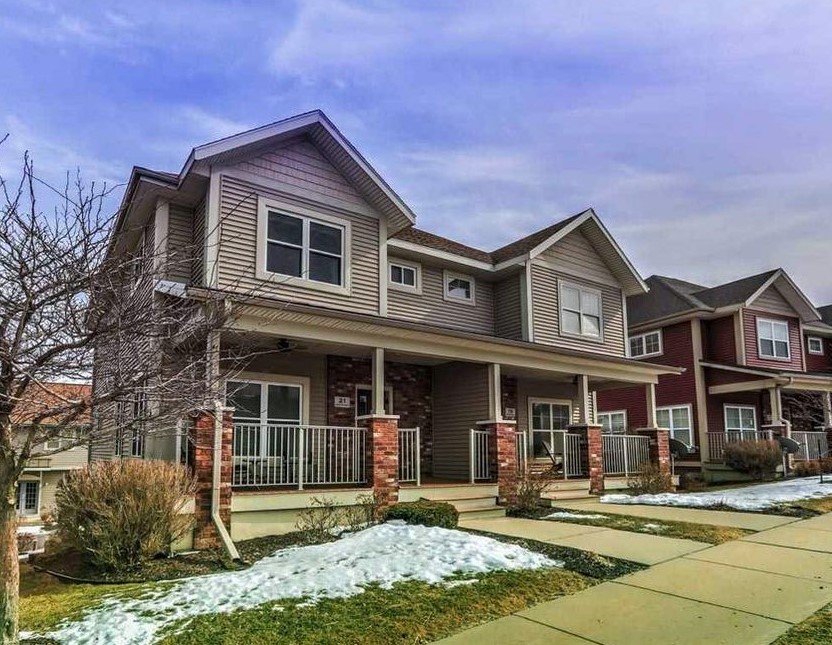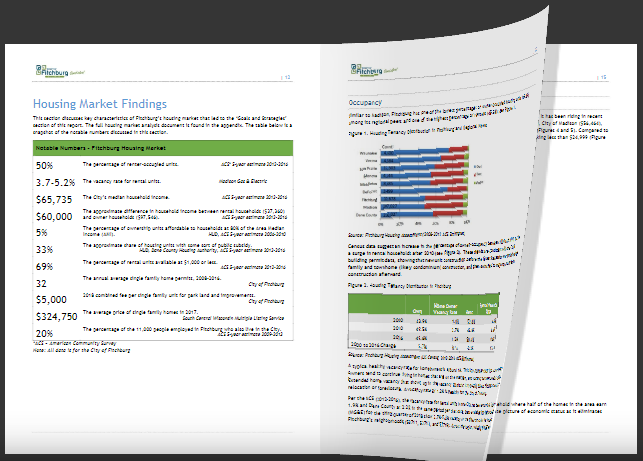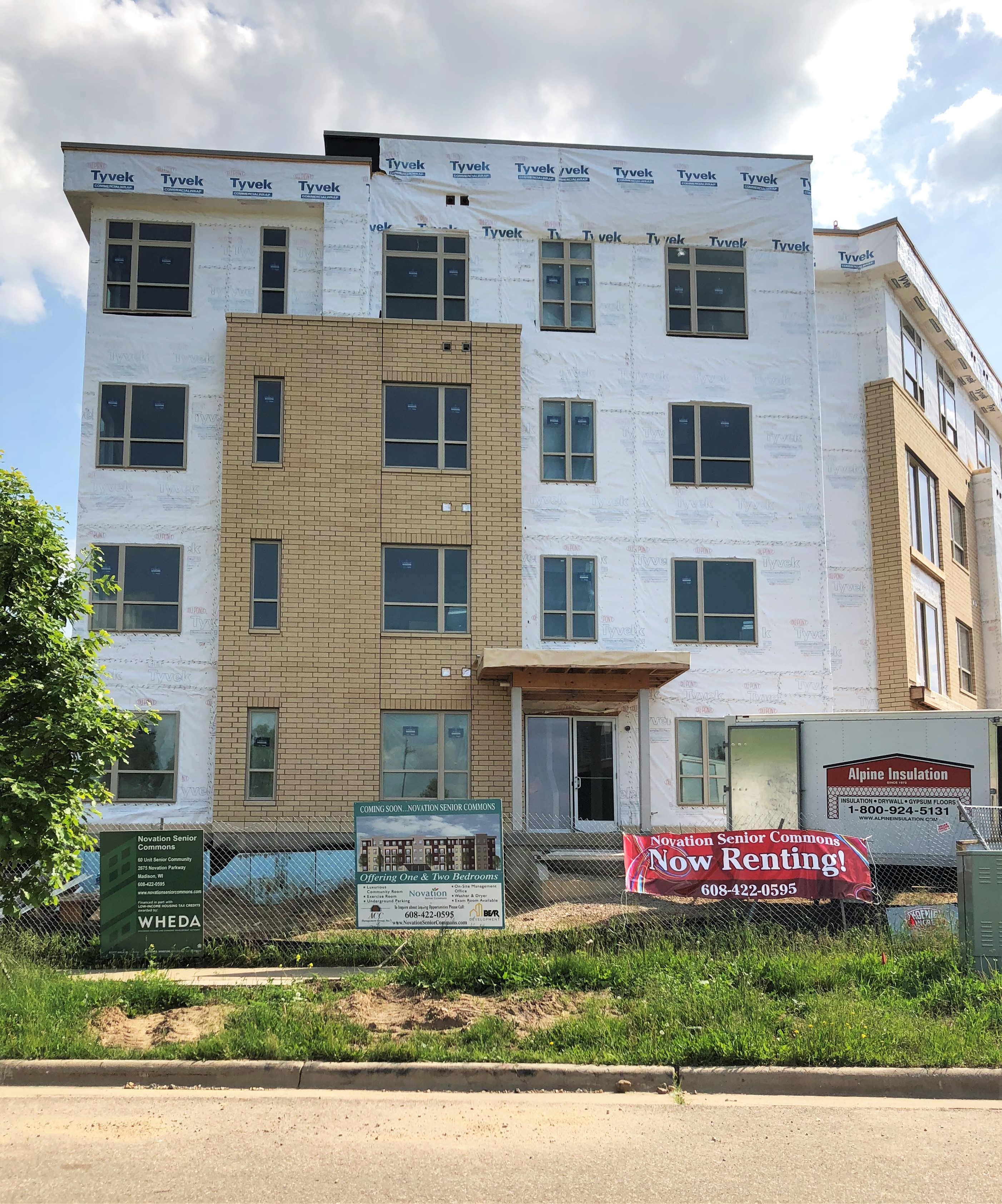The City of Fitchburg spans 36 square miles, having incorporated the entire Township and growing dramatically in the 1960s and 1970s with the addition of new multifamily rental housing. In the 1980s-2000s, local housing and neighborhood development focused primarily on single-family, owner-occupied detached units, which fulfilled the lagging homeownership market, but also led to two divergent patterns of housing development over time. Today, Fitchburg is home to nearly 30,000 residents, with a near 50/50 split of owner-occupied versus renter-occupied units.

The City discovered some troubling statistics while analyzing the demographics of their local housing market, finding that while rental units tended to be older and still relatively affordable within the area, the City’s average single-family home was markedly more expensive than in most other regional communities. They also found a large gap in availability of rental and owner-occupied homes to families due to disparities in household incomes between these household types. This pointed to a very obvious gap in the housing market, and the need to address it before it became a deterrent to the City’s future growth and health.
The City of Fitchburg hired MSA in 2017 to create a playbook for guiding housing investment and development within the community.

The creation of the Fitchburg Housing Plan began with a robust public engagement campaign. Here, the MSA team worked to elicit feedback from and guide discussion with residents, stakeholders and members of a newly assembled Housing Advisory Task Force. The task force consisted of interested and involved residents and housing experts from the region that were asked to identify housing gaps and strategies to fill those gaps. In addition to the Task Force, insight was gained through workshops with local developers and by studying successful affordable housing initiatives from neighboring communities.

The result of the study was a list of targeted changes and strategies that the City should implement over the next decade. The main goals include prioritizing neighborhood health in all decisions, constructing more owner-occupied homes and rental units at various price points, upgrading or replacing existing rental housing to maintain affordability, and better upholding the needs of the community’s senior population. Supporting goals include implementing more urban design features, better access to public transit, quality parks and open spaces, community gathering spaces, and the development of both residential and commercial property in key, target areas and neighborhoods within the City.
The plan also outlined a staged approach for implementation, with suggestions for the creation of a Housing Committee, ongoing stakeholder communication, education, and engagement, the promotion of home buyer assistance programs, changes to City policy and ordinance, and a guide to local, state and federal funding sources to help City leadership and residents support the plan.
Together, an objective study of the housing market paired with insights from the community and the creation of an implementable Housing Plan, will ensure that future housing transitions and improvements within the City of Fitchburg are all fully supported, funded, and successfully realized to best support all residents of the community.
